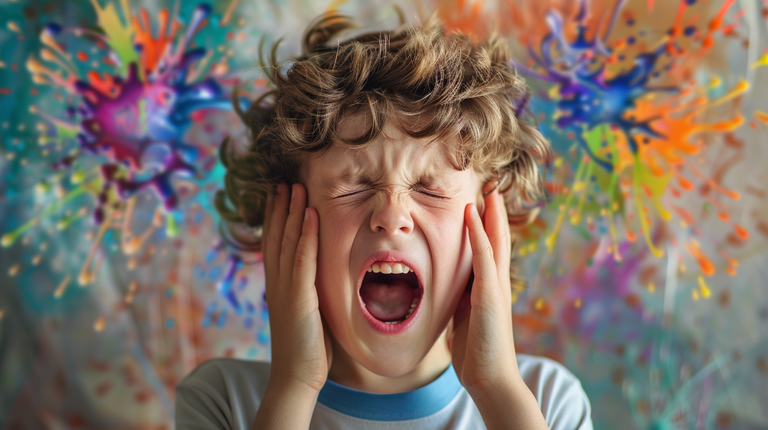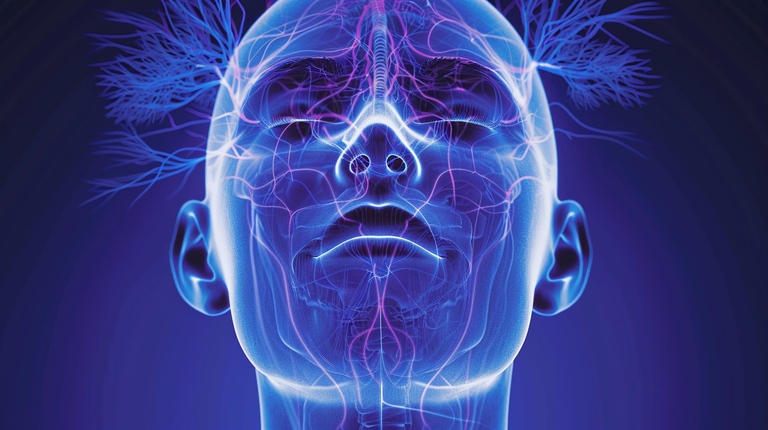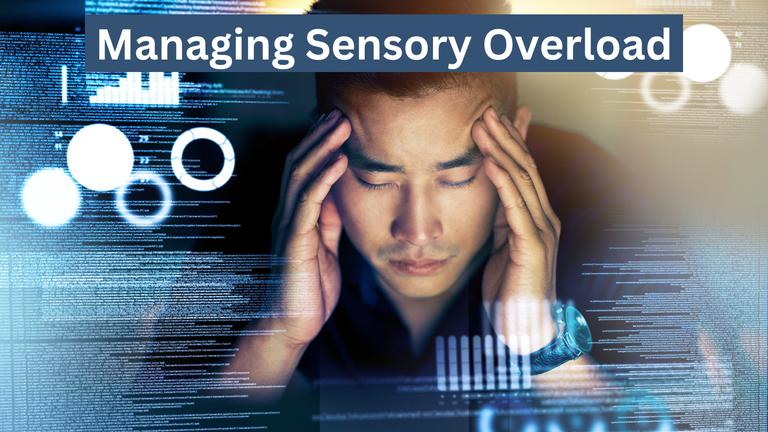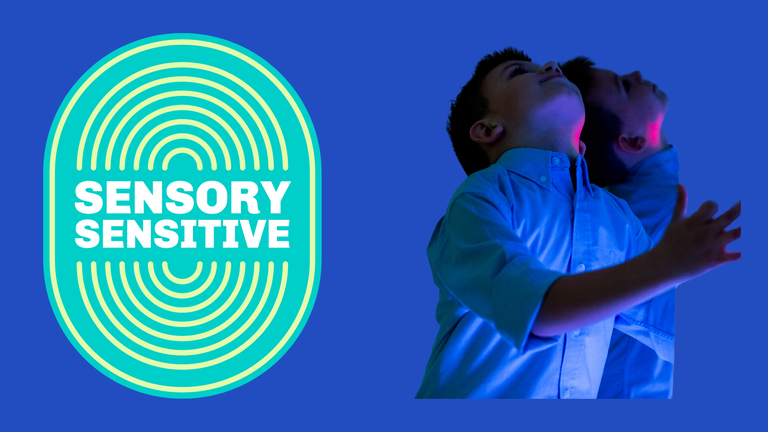ADHD & Sensory Challenges: What to Know

Here Are Some of My Sources for This Post
https://chadd.org/adhd-news/adhd-news-adults/coping-with-sensory-overload/
https://add.org/stimming-adhd/
https://www.laaap.org/wp-content/uploads/2018/02/ADHD-and-Depression.F0907.pdf
https://www.ncbi.nlm.nih.gov/pmc/articles/PMC2824865/
ADHD affects attention, impulsivity, and hyperactivity. It can make it hard for people to focus in noisy or crowded places. Symptoms vary and impacts daily life. Coping with sensory overload is important for those with ADHD to improve their quality of life. Sensory overload is common and intense for people with ADHD. Their sensitivity to stimuli can be overwhelming. Understanding and managing sensory overload is crucial for individuals with ADHD and their support system to enhance their health and well-being.
Understanding ADHD and Sensory Processing
ADHD alters the brain's processing of sensory information. People with ADHD have a distinct way of processing sensory stimuli compared to those without the condition. In neurotypical brains, a filtering mechanism helps determine what to pay attention to, but this process functions differently in people with ADHD, leading to unique sensory experiences.
The prefrontal cortex and sensory cortex are essential in regulating sensory input and attention in the brain. Those with ADHD often exhibit atypical brain activity in these regions, impacting how they process sensory information. As a result, they may struggle to prioritize sensory cues and feel overwhelmed by stimuli that others find normal.
The Science Behind Sensory Sensitivity and the Stress Response in ADHD

Studies indicate that ADHD is linked to distinct methods of handling sensory data, as shown by physical reactions such as cortisol levels and electrodermal activity (EDA), along with variations in brain regions associated with sensory processing and attention. These changes involve shifts in cortisol levels, a hormone crucial for managing stress, metabolism, and immunity. In people with ADHD, cortisol release can be irregular, resulting in episodes of increased stress followed by decreased cortisol levels. This inconsistency can worsen ADHD symptoms, making it difficult to cope with stress and sustain concentration under pressure.
Sensory Sensitivity in ADHD: Hypersensitivity and Hyposensitivity
People with ADHD might experience sensory sensitivity in two main forms:
- Hypersensitivity (Over Sensitivity): An exaggerated response to sensory stimuli such as loud noises or bright lights. This can lead to avoidance behaviors to escape these overwhelming environments.
- Hyposensitivity (Under Sensitivity): A reduced sensitivity to stimuli, leading to seeking out intense sensory experiences to compensate for under-stimulation.
Both hypersensitivity and hyposensitivity can profoundly affect daily interactions and the ability to perform tasks.
The Role of the Hypothalamic-Pituitary-Adrenal (HPA) Axis in ADHD
The HPA axis plays a key role in how the body responds to stress. People with ADHD often have issues with this system, which can affect how cortisol is produced. This can lead to problems with managing emotions and processing sensory information.
How Sensory Processing Affects People with ADHD's Sensitivity to Sights and Sounds

People with ADHD who are very sensitive to sights and sounds have a biological reason for their reactions. This sensitivity means they can overreact to sensory things that others find normal. Studies show that this heightened sensitivity is linked to unusual brain activity in areas that handle sensory information and emotions, like the amygdala and sensory parts of the brain. These brain areas may respond too strongly or for too long to sensory input, making the person feel overwhelmed and causing them to avoid certain things or feel stressed.
Link Between ADHD and Autism Spectrum Disorder (ASD)
Both ADHD and ASD share similarities in sensory processing challenges and may have overlapping genetic markers affecting brain development. This overlap is crucial for diagnosing and treating these conditions effectively.
ADHD Symptoms Linked to Sensory Overload
People with ADHD may feel overwhelmed by sensory stimuli due to their main symptoms: inattention, impulsivity, and hyperactivity.
- Inattention can make it hard for them to focus and filter out distractions.
- Impulsivity causes them to react quickly and strongly to sensory input.
- Hyperactivity leads to constant interaction with their surroundings, resulting in an accumulation of sensory experiences that can be overwhelming.
Effects of Anxiety and Stress on Increased Sensory Sensitivities
Anxiety and stress can heighten sensory sensitivities in people with ADHD, potentially causing them to feel overwhelmed by everyday stimuli.
Key Points:
- Managing anxiety and stress is essential for effectively dealing with sensory overload in ADHD.
- Recent studies have shed light on how children with ADHD physically respond to stimuli, revealing important insights into their sensory experiences.
Key Findings:
- Sweat levels, measured through Electrodermal Response, can indicate alertness or stress levels in children with ADHD.
- Research indicates that children with ADHD may have heightened sweat levels, making them more sensitive to their surroundings.
- This increased sensitivity can pose challenges in adapting to repetitive stimuli and maintaining focus.
- Cortisol levels, known as the "stress hormone," differ in children with ADHD compared to those without the condition, impacting their stress management and sensory processing.
- Fluctuations in cortisol levels among children with ADHD have been associated with increased behavioral issues in stressful or stimulating environments.
The findings underscore the importance of stress management in effectively handling sensory overload in individuals with ADHD.
Managing Sensory Overload

Identifying triggers is critical for managing sensory overload. Practical steps include:
- Establishing structured routines to reduce surprises that might cause sensory overload.
- Using sensory tools like noise-canceling headphones or weighted blankets to manage sensitivity.
- Practicing relaxation techniques such as mindfulness to cope with overwhelming situations.
Therapeutic Approaches:
- Sensory Integration Therapy and Occupational Therapy can help individuals adapt to sensory stimuli more effectively.
- Cognitive-Behavioral Therapy (CBT) and other behavioral interventions can provide strategies to cope with sensory overload and improve emotional and behavioral responses.
Behavioral and Neuroendocrine Characteristics
Children with ADHD may have trouble with sensory issues at school and home, which can manifest as a lack of focus or disruptive behavior. Being overwhelmed by sensory input can exacerbate symptoms by triggering stress hormones. Recognizing this link is crucial for obtaining the correct diagnosis and treatment, which may include stress management and specialized therapies. Addressing both behavioral and sensory challenges is vital for assisting children with ADHD in feeling better.
ADHD Triggers and Tips
People with ADHD may have issues with sensory triggers like bright lights, loud sounds, uncomfortable textures, crowded spaces, strong smells, and certain tastes. Finding your triggers is important for creating personalized strategies to manage sensory overload. Tips include keeping routines, taking breaks, changing your surroundings, using relaxation methods, trying sensory tools, taking care of yourself, and avoiding triggers when you can. Understanding how ADHD affects you and adjusting your strategies can improve your life and how you interact with the world.
Therapies for Sensory Sensitivity in ADHD

Addressing sensory sensitivity in people with ADHD involves different therapies to help with their sensory challenges. Some strategies include:
- Sensory Integration Therapy: Using structured sensory activities to improve how individuals respond to sensory stimuli and process them better, reducing sensitivity symptoms.
- Occupational Therapy: Teaching skills to manage daily tasks and overwhelming environments based on personalized assessments of sensory needs. Techniques like changing the environment or using tools like therapeutic brushing or weighted vests help regulate sensory input.
Cognitive-Behavioral and Other Therapies
- Cognitive-Behavioral Therapy (CBT) adapted to help individuals with ADHD manage sensory issues by understanding the connection between thoughts, emotions, and sensory responses. It offers strategies to deal with sensory overload effectively. Other Approaches:
- Medication: While there isn't a specific medication for sensory issues in ADHD, certain medications that target ADHD symptoms can indirectly help with sensory sensitivity. For example, stimulant medications can improve brain function related to attention and sensory processing.
- Behavioral Interventions: Techniques such as reinforcement, routines, and teaching appropriate responses to sensory stimuli help individuals build self-regulation skills and coping strategies for challenging sensory situations. Combining different therapies can offer support for sensory sensitivities in people with ADHD, improving their functioning. Working with therapists, educators, and families is important to customize interventions based on individual needs for the best results.
Conclusion
It's important to deal with sensory issues in people with ADHD to improve their quality of life. Sensory therapies, changes in surroundings, and getting help from professionals can help manage sensory overload. Seeking support and participating in research can help people with ADHD handle sensory challenges better.
Helpful Resources
Children and Adults with Attention-Deficit/Hyperactivity Disorder (CHADD)
Attention Deficit Disorder Association (ADDA)
The National Resource on ADHD
Share your experiences in the comments to give support and different viewpoints to others. Sharing your story can inspire and help others. Let's continue supporting each other to enhance our understanding and management of ADHD.
Thank You for taking the time to read this post.
Images created using Midjourney and Canva, for which I hold commercial licenses.
#ADHD #psychology #mentalhealth #cwh #Misophonia #SPD #Senses #Hypersensitivity
HTTP is in use instead of HTTPS and no protocol redirection is in place. Do not enter sensitive information in this website as your data won't be encrypted.
Read about HTTP unsafety: [1] [2]
_ Vote for our WITNESS to support this FREE service!
Omg, ty so much for alerting me! Typo. I have now updated it, thank you for the alert.
Hello.
There is reasonable evidence that this article is machine-generated.
We would appreciate it if you could avoid publishing AI-generated content (full or partial texts, art, etc.).
Thank you.
Guide: AI-Generated Content = Not Original Content
If you believe this comment is in error, please contact us in #appeals in Discord.
@hivewatchers Please stop falsely accusing and targeting people in the Creative Work Hour community and the hive community in general. You are creating a toxic environment in the Hive community and dissuading legitimate content creators from participating. If you're going to contribute to the community go after bitcoin farmers not creatives.
Hello.
AI-generated fraud is still part of our scope of abuse. This abuse scope has become even more stringent since there is an overwhelming disapproval of the community for this type of fraud. That includes poems generated with poem generators.
Again, you are falsely accusing people and pushing legitimate creatives away from using the block chain. While I appreciate your attempt at “protecting” hive rewards, your toxicity and threats are not welcome here. I encourage you to use your resources to go after bitcoin farming exploitations rather than creatives with small followings who adhere to the blockchain’s rules but may make creative content that does not suit your personal preferences.
@hivewatchers @guiltyparties FWIW, I'm in a co-working group with @gregscloud every day. I heard him discussing writing this piece over a few days as he talked about the project he was working on.
Greg does a lot of research on his posts. He also writes in with a formal style which will definitely trigger an AI detector. I haven't asked him if he's using an editor to put out the polished work that he does but as you know, if using something like Grammarly or ProWrite, it will also trigger AI scans.
Based on what I heard him talking about in the group, I'm pretty sure you've made an error here.